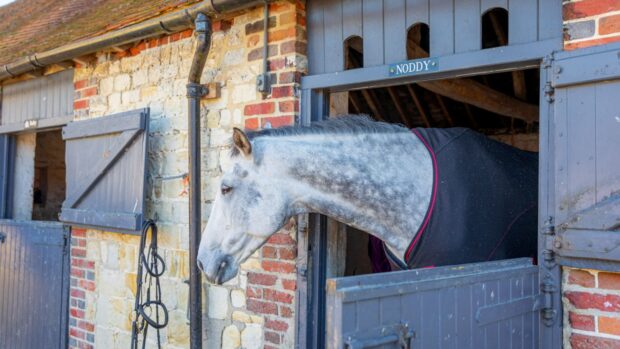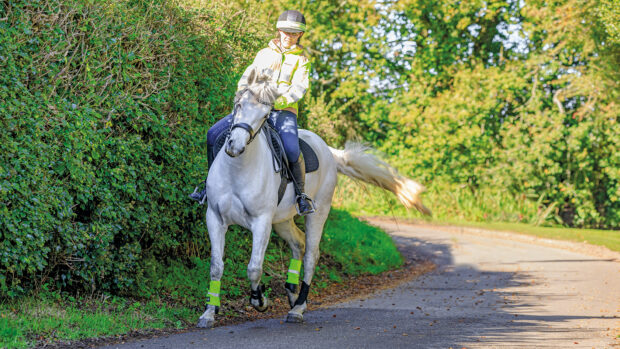While some horses will have come through the winter well, others will be lacking condition following a busy winter season in the hunting field or competing indoors.
In winter, a horse needs up to 1/3 more calories to keep weight on, due to the demands of keeping warm. This is especially true of those living out, and fine-skinned clipped-out models.
The kind of weight gain most people want is where all the weight seems to go in the right places. Such horses are not made by feed alone, and a combination of good feeding and schooling will be required for a horse to gain a satisfactory top line.
Quality weight gain comes from the right balance of energy and protein, plus the right kind of exercise. An energy- and protein-rich conditioning feed provides the amino acids that form the extra muscle made by schooling, with the energy required for the horse to work harder without losing weight.
Owners are quite rightly undecided when told to feed more of these high-energy conditioning-type products to their horses, as it usually ends in an outburst of exuberant behaviour. Feeding the high-energy ration that conditioning feeds often consist of doesn’t help.
However, it is possible to feed for increased weight gain without sending your horse sky high by choosing a higher-energy feed, which is low in starch and higher in fibre and oil. This type of feed may be les likely to heat a horse up than a lower-energy, higher-starch variety.
Feeding without the fizz
- Good forage is the cornerstone of a good weight-gain diet. Poor or variable forage can cause weight loss
- Spring grass will promote weight gain as it is one of the richest feedstuffs available
- Feed 2.5-3% of bodyweight depending on the amount of weight gain required
- A serious weight gain diet for a horse could be 60% forage to 40% hard feed
- A less heating diet could be 70% forage and 30% low-starch concentrate
- Horses that continue to be below optimal condition despite being on a weight gain regime should be checked by a vet as they may be suffering a low-grade pain
- The safest weight gain may happen in the feed used is low in starch, although results will always be quicker with a conditioning feed
This article was originally published in Horse & Hound.
|
||
 |
||


 Get up to 19 issues FREE
Get up to 19 issues FREE TO SUBSCRIBE
TO SUBSCRIBE 



